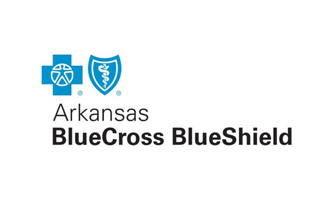Alumni Spotlight: Soujanya Hegde
Meet Soujanya Hegde, a Bentonville-based Walton College alumna who earned her Master’s in Applied Business Analytics.
10/30/2025 | By Hannah Dryden
Employers face a vast shortage of deep analytical talent, as well as managers qualified
to make data-informed decisions.
Move beyond conventional methods of data discovery. Summarize and present data in
ways that can be understood and acted upon.

The need to effectively analyze data is growing at an amazing rate. At the same time,
businesses are finding that they lack enough skilled professionals to fill those roles.
Industry analysts predict that the United States will soon face a vast shortage of
people with deep analytical skills as well as the managers and analysts qualified
to make decisions based on that data.

A full-time degree program, and a part-time program for working professionals.

What coursework is required for this degree?

How Much? How Long?
Who can enroll?
Admission to Walton College masters programs is selective. Enrollment in each program is limited.
Enterprise Systems at Walton College are comprised of five major hubs and support systems, along with access to large, real-world datasets.
Enterprise systems platforms integrate business processes and align IT to support business strategy.
Students who choose the full-time program option finish their degree in one year.
Working professionals can complete the part-time schedule in less than two years.
The Department of Information Systems and the Graduate School of Business have structured this program to meet the needs of working professionals as well as traditional full-time students. Do you have questions about your schedule options? Contact us.
1 - 2 Years
The full-time program can be completed in one year. The "professional" part-time program can be completed in less than two years.
Program Specific
The full-time program begins in mid-May. The part-time program begins in the Fall Semester.
Do I Qualify to Enroll?
Complete your undergraduate degree and meet additional requirements. View Requirements
GMAT or GRE
Students may be eligible for a GMAT/GRE test waiver with a 3.2 undergraduate GPA or 3 years of professional work experience. Please review our master's admissions policies.
Professional, Part-Time
July 1
Full-Time
International applicants: November 1
Priority (domestic applicants): March 1
Professional, Part-Time
View Cost Breakdown
Full-Time
View Cost Breakdown
The 4+1 Master of Applied Business Analytics program option will allow well-prepared undergraduate students to begin graduate courses during the last year of their undergraduate studies.
WHO: Walton students with a 3.2 undergraduate GPA.
WHAT: Early consideration for a graduate program and possible dual credit between an undergraduate and graduate degree.
WHEN: Apply by February 15 in Spring of your second-to-last undergraduate year.
WHY: Save time and potentially money!
Students interested in the 4+1 Master of Applied Business Analytics program will require additional guidance and advising.
Prospective employers indicate a strong demand for graduates with a working knowledge of applied business analytics. Job titles associated with the knowledge and skills obtained from the program include:
According to the Bureau of Labor Statistics, median pay in 2023 for a management analyst is $99,410 per year. Salaries vary based on location, experience and education.
National median pay for management analysts in 2023.
Number of people employed as management analysts in the United States in 2023.
Projected numeric change in the number of employed economists from 2023 to 2033. (+11% change. The average growth rate for all occupations is +5%.)
Source: Bureau of Labor Statistics, U.S. Department of Labor (2023)
Executives and managers from the multiple organizations wrote letters of support for offering the Master of Applied Business Analytics degree. These include: Arkansas BlueCross BlueShield, Teradata, Dillard’s Inc., Tyson Foods Inc., Wal-Mart, and J.B. Hunt Transport Inc.
 "Data driven decision-making permeates throughout our company. Consequently, analytics
has become very important in many roles, from operational to strategic decisions."
"Data driven decision-making permeates throughout our company. Consequently, analytics
has become very important in many roles, from operational to strategic decisions."
 "Analytics has become a critical role within companies to make informed and advanced
decisions to improve and transform their business. This disciplinary focus exemplifies
courses and subject matter for training necessary to produce qualified professionals
toward advanced skills in analytics."
"Analytics has become a critical role within companies to make informed and advanced
decisions to improve and transform their business. This disciplinary focus exemplifies
courses and subject matter for training necessary to produce qualified professionals
toward advanced skills in analytics."
 "Over the last few years the use of data to make decisions in our organization has
had great success with a great ROI. This program would be crucial in getting more
people in the organization the skills to use data more effectively."
"Over the last few years the use of data to make decisions in our organization has
had great success with a great ROI. This program would be crucial in getting more
people in the organization the skills to use data more effectively."
Students may choose from a variety of elective analytics courses focusing on business applications or a deeper dive into statistical theory. The program culminates with a multi-semester practicum experience where students work with industry data to complete an analytics project from beginning to end.
The Master of Applied Business Analytics degree will arm students with a solid knowledge of business analytics, data handling and management, machine learning methods, optimization, and computing.
Data skills, combined with knowledge of business application modeling and business problem solving, will enable students to identify, assess, and seize the opportunity for data-driven value creation in the private and public sectors.
Focus is given to answering questions such as:
The Master of Applied Business Analytics degree is offered in both a Part-time (5 semesters, 6 hours per semester) basis or a Full-time (1 year, 30 credit hours) basis.

The Walton Professional MABA is designed for working professionals. The program can be completed by taking six hours a semester for five semesters (21 months).
Courses are taught through a blended-delivery format with both face-to-face and online components, so students are in class only one Saturday per month. We work hard to simplify the logistics of returning to school, so that you can focus on learning. Additionally, many employers offer tuition reimbursement programs, so check with your HR department to see if this great benefit is available.
| Spring 2026 |
Summer 2026 |
Fall 2026 |
Spring 2027 |
Summer 2027 |
| January 17 |
May 16 |
August 22 |
January 23 |
May 22 |
| February 14 |
June 6 |
September 12 |
February 13 |
June 12 |
| March 14 |
June 27 |
October 3 |
March 13 |
June 26 |
| April 4 | July 25 |
November 7 |
April 10 |
July 24 |
| April 25 | December 5 |
May 1 |
* Students admitted to the professional programs in the Walton College are required to attend a multi-day orientation prior to the start of scheduled courses. Dates to be determined. Please contact gsb@walton.uark.edu for more information.
Meet Soujanya Hegde, a Bentonville-based Walton College alumna who earned her Master’s in Applied Business Analytics.
10/30/2025 | By Hannah Dryden
Daniel Conway was appointed chair of the U.S. Blockchain Technical Committee under the InterNational Committee for Information Technology Standards.
10/08/2025 | By Lori McLemore

Join a supportive and engaging community located in the vibrant business network of Northwest Arkansas, with over 300 Fortune 500 companies with a presence in the region.
Business leaders and Walton alumni are closely connected to the college, not just during your studies, but throughout your career.